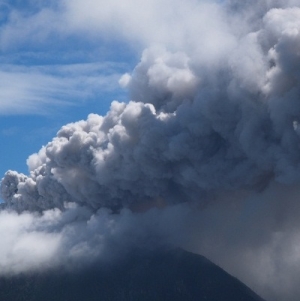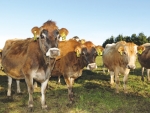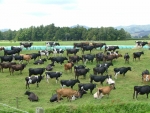Some dairy farms are likely to have been affected by the eruption and farmers need to be aware of the risks to animals from ash – particularly at-risk are hungry animals grazing short pastures.
Fluorine is particularly toxic and is present in many volcano eruptions, as it attaches to the ash and can travel with the wind to farmlands around the volcano. However, rainfall helps reduce the risk, as the fluoride in ash is quite soluble.
DairyNZ recommends that any dairy farmers concerned about their animals should:
• feed good quality feed supplement that has been covered
• shift animals to long pasture and graze at a low stocking density
• provide plenty of uncontaminated water
• if conditions are particularly severe, consider shifting animals out of the region.
Light volcanic ash from the eruption may affect the Waikato, Bay of Plenty, Hawke's Bay and Gisborne. It is important to keep up-to-date with information from Civil Defence, particularly via local radio.


















